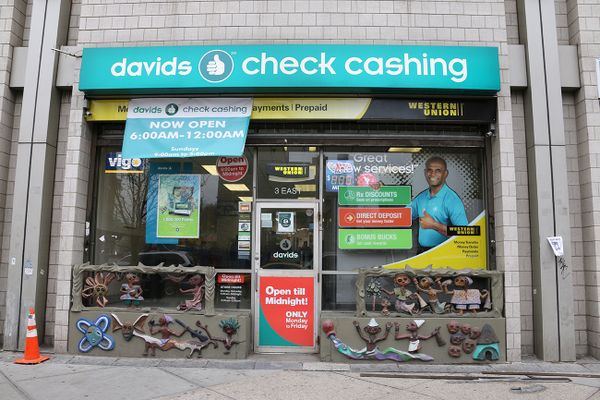
Maybe you're a big fan of the classic movie "It's a Wonderful Life," and dream of operating your own version of Bailey Building and Loan. Or maybe you want to emulate Amadeo Peter Giannini, the early 1900s fruit vendor who convinced immigrant families in San Francisco to deposit their savings in his new bank, which eventually became Bank of America.
If so, provided that you have enough money, a good business plan and the patience to make it through the regulatory process, you could actually start your own bank.
Advertisement
Plenty of people have, over the years. Unlike most industrialized countries in the world, which tend to have just a handful of big banks, the U.S. has thousands of them, ranging from small-town institutions to massive multistate behemoths.
"The U.S. is the only industrialized nation in the world where a group of citizens can start a bank," explains Edward J. Carpenter, in an email interview. He's the chairman and chief executive of Carpenter & Company, a Newport Beach, California, consulting, private equity, broker-dealer and registered investment adviser firm that has assisted clients in starting hundreds of banks and savings & loans across the nation since the 1970s. The company handles 40 percent of new bank applications in the U.S.
Most of the would-be bank founders who come to Carpenter for guidance are groups, but it's possible for a single wealthy person to start a bank and own 100 percent of it. "Several years back, we did one in which an individual put in $50 million and started his own bank," Carpenter recalls. Solo founders often are civic-minded individuals, rather than someone motivated by ego or the prospect of becoming even richer. In some instances, they're trying to take the place of a small local bank that recently closed down.
Carpenter says that people start banks for various reasons. Sometimes, bank startup entrepreneurs think they can find customers in a particular community that's underserved by existing financial institutions. In one common scenario, a group of Chinese-Americans or Latinos might decide to start a local bank to serve immigrant customers in their native language. Other bank founders possess a specific sort of lending expertise that gives them a competitive advantage in some particular business. (Sometimes that niche can be pretty arcane — Carpenter cites the example of one bank that was founded specifically to make loans on special engines that seaports and government agencies use to retrofit old diesel trucks to run on electricity.) Or maybe they have a plan to offer mobile banking or some other service that local competitors don't yet have.
In addition to brick-and-mortar community banks, in recent years, companies involved in the financial technology field, also known as fintech, have also begun allowing starting online banks to take advantage of innovations they've developed, such as software that automates and speeds up the loan application process. "That's much more of a new wave," Carpenter says.
Advertisement


